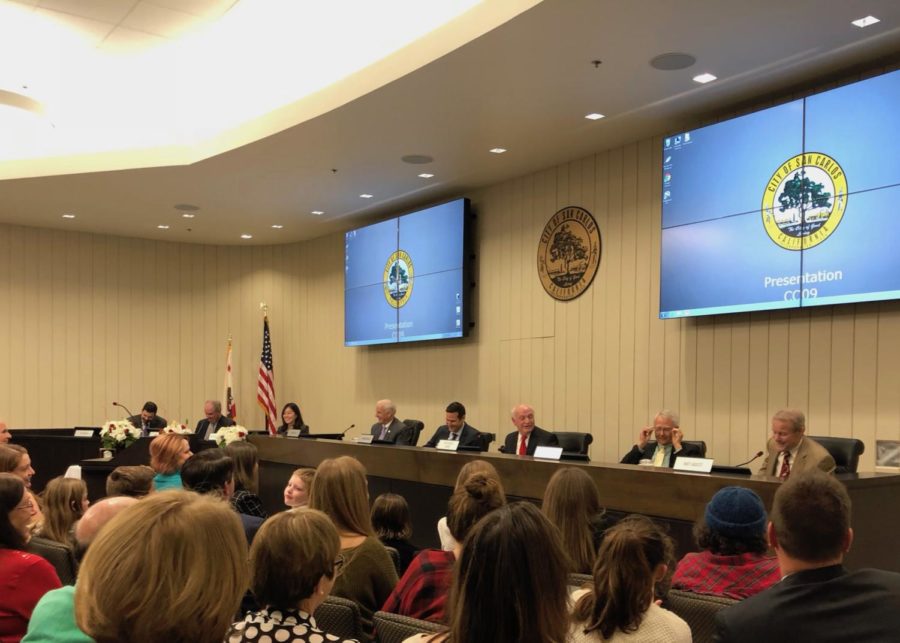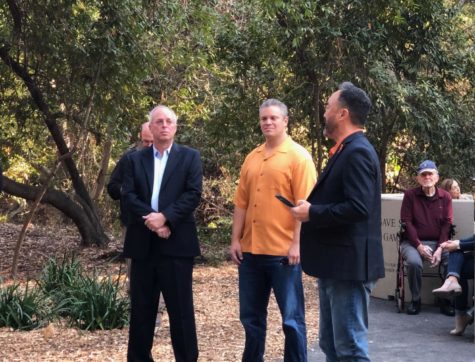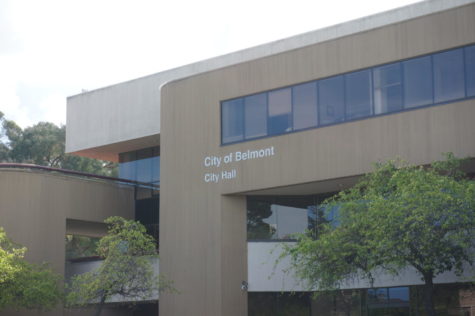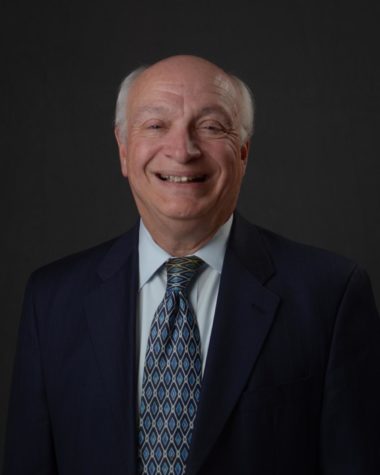Things are different in San Carlos.
None of the three incumbents whose seats were up this year chose to run for re-election, so council gadflies can no longer enjoy the perennially confused quasi-libertarian dissents of Matt Grocott nor the judicious parliamentary procedure of Lord Mayor Bob Grassilli. A slate of fresh faces replaces them and now dominates the council, although they aren’t neophytes as far as San Carlos city politics are concerned: former school board trustee Adam Rak, businesswoman Laura Parmer-Lohan, and economic commissioner Sara McDowell.
Following the traditional rotation, Mark Olbert became mayor. Olbert has been on the council since 2011 and was mayor once in 2013. As far as I can tell he’s a relatively moderate figure who was emphatically in favor of the gun store moratorium about a year ago. (I also found his blog about the infinite torture of powerusing Microsoft products, which is the ticket to my heart.)
Admittedly, I don’t know a huge amount about San Carlos city politics. I’ve become a bit of a Belmont chauvinist over the years — I concede I’ve found myself consciously preferring businesses in our city versus their “City of Good Living,” even if Yelp or common sense would advise me otherwise. But something Olbert said at Monday’s meeting caught my ear. He mentioned that he’d like to be addressed as “Chair” of the meeting, not the “Mayor,” because being mayor is a ceremonial position and he’d like to emphasize to the public that it actually confers him no benefits. (Except, of course, chairing the meeting, but I guess the crux of it is that he says he doesn’t want to be “first among equals.”)
I find this a bit bizarre. By virtue of being the leader of the meeting, Olbert is the definitive “first among equals.” To have it otherwise would defeat the central tenets of parliamentary procedure. But sure, fine. I suppose it’s all in the spirit of local government to introduce minor procedural quirks for shreds of self-aggrandizement.
I’m probably in the minority, but I am steadfast in my conviction that the ceremonial mayor is not only important, but vital. I’m well aware Olbert isn’t actually divesting himself of any responsibility by asking his colleagues to address him as “Chair,” but this preference calls into question the nature of ceremonial mayoral positions themselves.
They are, of course, a catalyst for petty spite and drama. The Millbrae city council was rendered arthritic with indecision when, in 2017, they made Gina Papan mayor but couldn’t decide on a vice mayor. Ann Schneider was next in line, but complicated intra-council ill will meant that every motion to nominate her died on the floor. As did those to nominate others (Reuben Holober voted against himself), until eventually councilman Wayne Lee was made vice mayor after months of indecisive domestic turbulence.
Nothing’s new in Foster City — as of this week, the lack of an established rotation has cast the entire chamber into mania. On Monday, they blew up whatever scraps were left of their established mayoral rotation by renominating Sam Hindi for another term as mayor and nominating their resident parliamentary nonconformist Herb Perez as vice mayor — again — for reasons that baffle the mind and aggravate the senses. This all, of course, coming after an unusually hot-tempered race, even by bizarro Foster City standards.
And earlier this week, back in Millbrae, yet another snippy council meeting saw Schneider passed over for vice mayor once again — now Lee is Mayor and a “reluctant” Holober is vice mayor. I won’t try to dissect the political dynamics here, but suffice it to say that certain voters might be experiencing certain regrets.
And for what? It isn’t like the mayor holds any real power over anything. As Olbert alluded to in San Carlos earlier this week, the extent of their power is basically procedural. It’s their job to recognize speakers, open and adjourn the meeting, authenticate documents, and enforce decorum. Thus while a good mayor might run a tight meeting that wraps up before nine, the actual effect they have over the deliberative process is minimal. And vice mayor matters, predictably, even less.
So, when Schneider got passed over in Millbrae last year, I think there was almost some comedy to the tempest it ignited among Millbraeans. “It’s symbolic,” an ordinary objection would state. Basically the bureaucratic jargonese version of “it’s the thought that counts.” Does it?
By my peanut-gallery count, the answer is yes. It matters. A lot.
There are basically two main structures of local government. The least common but most folksy of the two is the one where the voters independently elect a mayor and a council, and the mayor has some varying degree of executive authority over the machinations of the city. This variety is called the “mayor-council” system. Most big cities use it. There are actually two different types of mayor-council government — weak-mayor and strong-mayor — and, well, you can probably guess what characterizes those.
The other system, which predominates among the humble cities of San Mateo County, is “council-manager,” whereby an executive director called a city manager really runs things, and an elected council hems and haws over her proposals. In this system, the title of mayor is ceremonial and parliamentary: they run the meetings and do fun Norman Rockwell stuff, like handing out the key to the city and cutting the ribbons of new gas stations. And mayorship, in places, also serves as an object for the overweening ambition of egoistic local politicians who feel entitled to the three centimeters of superiority it affords.
It might sound like I’m bashing the concept of ceremonial mayors. Please don’t mistake my meaning. In fact, it’s precisely for those reasons that we need to retain the position of ceremonial mayors, because without them the egoism and spite they attract has nowhere to go except into things that do matter — things like infrastructure proposals, municipal budgeting, managing pension obligations, vetting prospective staff, appointing qualified commissioners, and heralding once-in-a-century development projects made possible by pitch-perfect Bay Area economic circumstances.
There are other angles worth considering as well. It’s an accurate and optimistic reading of social progress that Belmont has just nominated its first African-American mayor in our history, Davina Hurt, a move which resulted in at least two standing ovations at Tuesday’s meeting. And at a time when many cities in the area have been left dreading the district-elections letter, it’s been suggested that a mayor-council setup might be an adequate offset to the geographic segregation caused by voting wards.
But most of all I’d hate to see the petty psychologies that make ceremonial mayorships such a poetic dumpster fire work their way into the arena of things that actually matter — and appear, at least to a degree, to be functioning normally for the first time in years.
Anyway, Chair Olbert, I’ll be calling you “Mayor,” if that’s alright with you.
















